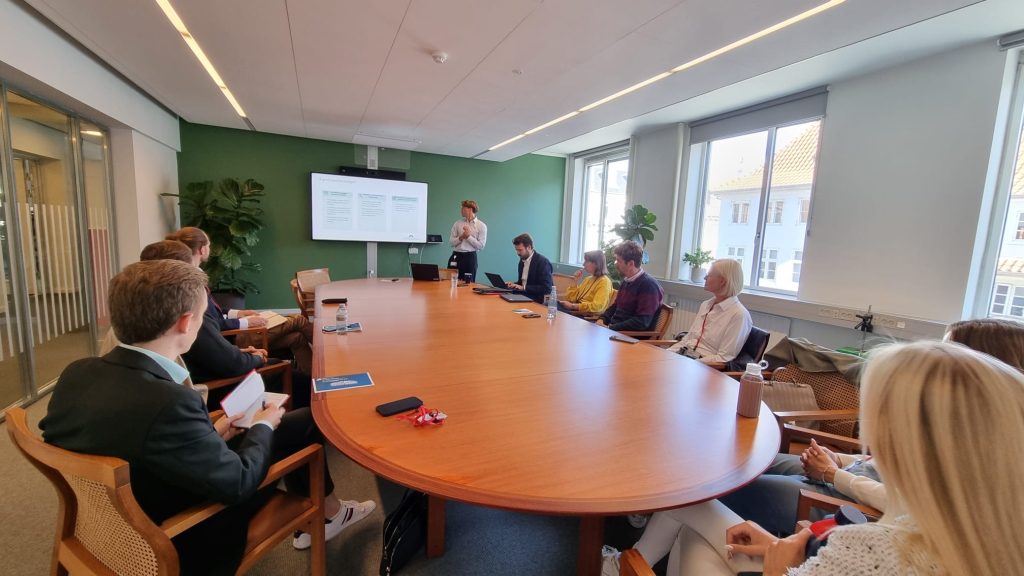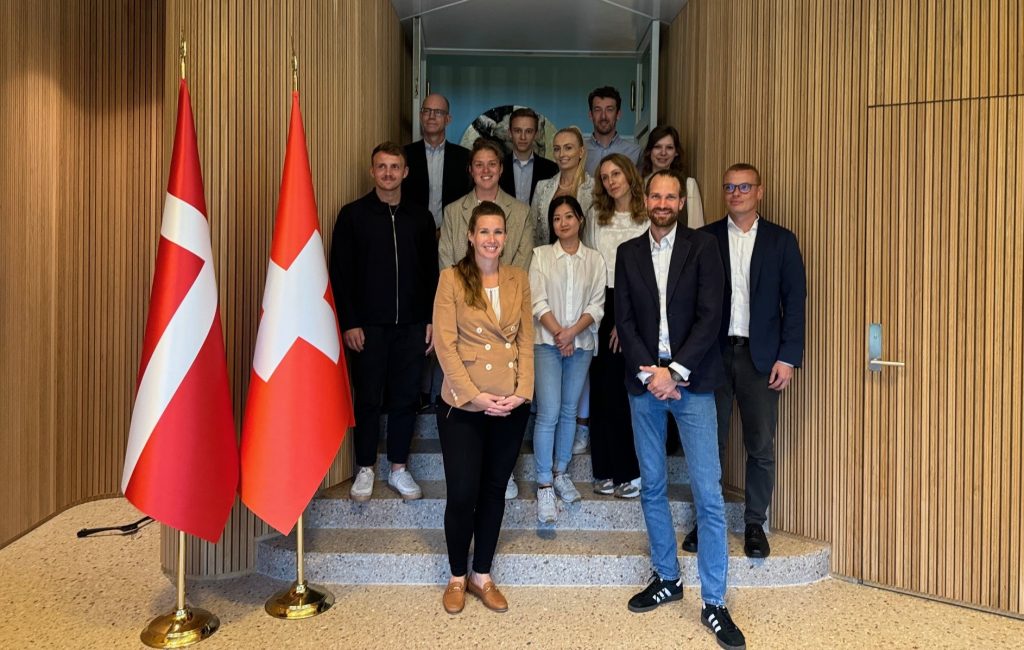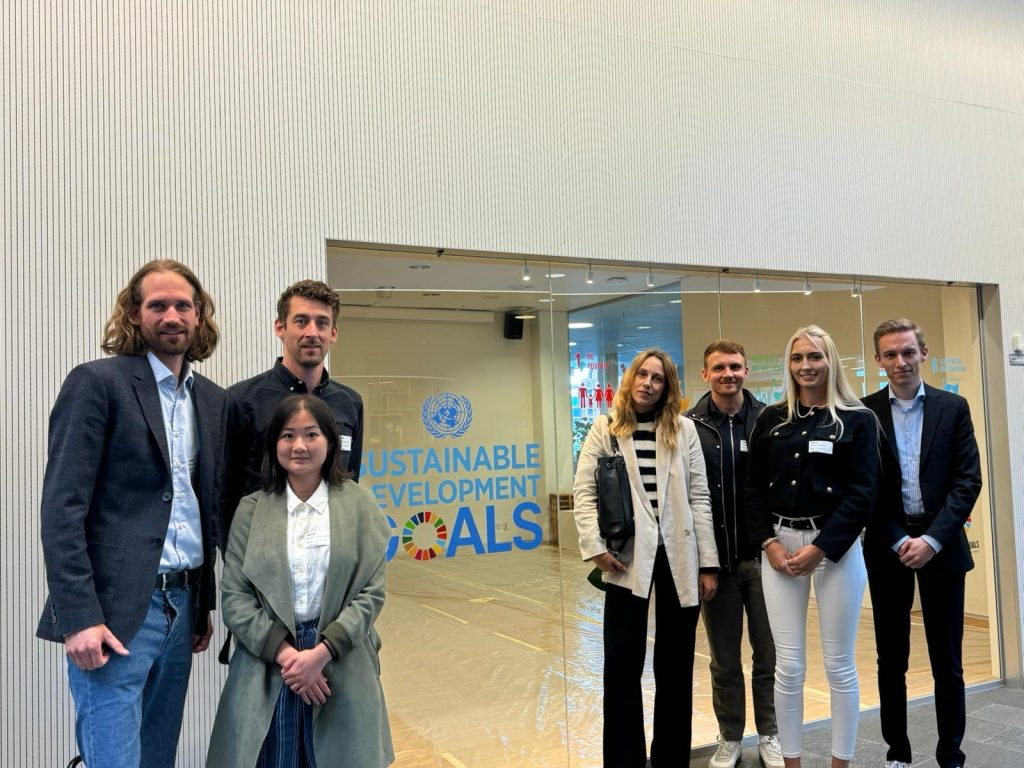From 9:30 to 11:30 AM, we visited TANA, a Copenhagen-based consultancy specializing in international development cooperation. We were warmly welcomed by Erik Bryld, Senior Consultant Partner and Managing Director, who treated us to coffee, tea, and local Dutch croissants.

TANA operates with a team of 15 permanent employees and around 60 external consultants. The firm focuses on state-building, governance, peace and security, and climate change mitigation, primarily working with public sector clients. Their approach emphasizes transparency and collaboration, working with clients rather than for them. TANA’s projects span short- and long-term consultancies in diverse regions, including Africa, the Middle East, and Asia.
TANA frequently collaborates with external consultants for large-scale projects that require specialized expertise. They use the theory of change to guide their work, mapping out expected outcomes and understanding causal relationships between activities and results. This approach allows TANA to measure effectiveness and evaluate both intended and unintended outcomes. A deep understanding of the local context is essential for their work. TANA ensures that consultants are well-versed in the specific challenges of the countries they operate in, which is crucial for developing relevant, impactful, and sustainable strategies.

After a lunch break, we visited the Danish Ministry of Finance. Our visit provided fascinating insights into Danish financial management and state structure. The “Agency for Public Finance and Management,” active since 1995, plays a key role in this system. The Danish financial administration employs a budgeting system based on an “activity-based budget,” which means that budgets are created based on overarching tasks and objectives. A baseline budget serves as a foundation and is monitored quarterly to review the use of funds.
A particularly notable practice is the trust placed in individual ministries: they are responsible for adhering to their budgets and must provide an explanation if they underspend. Unspent budgets do not immediately lead to cuts. Instead, after repeated underspending, a comprehensive review is conducted to determine how effectively the funds have been utilized.
We also learned that Denmark has 25 ministries, each with its own budget and responsibilities, including one for the Queen and her staff.

